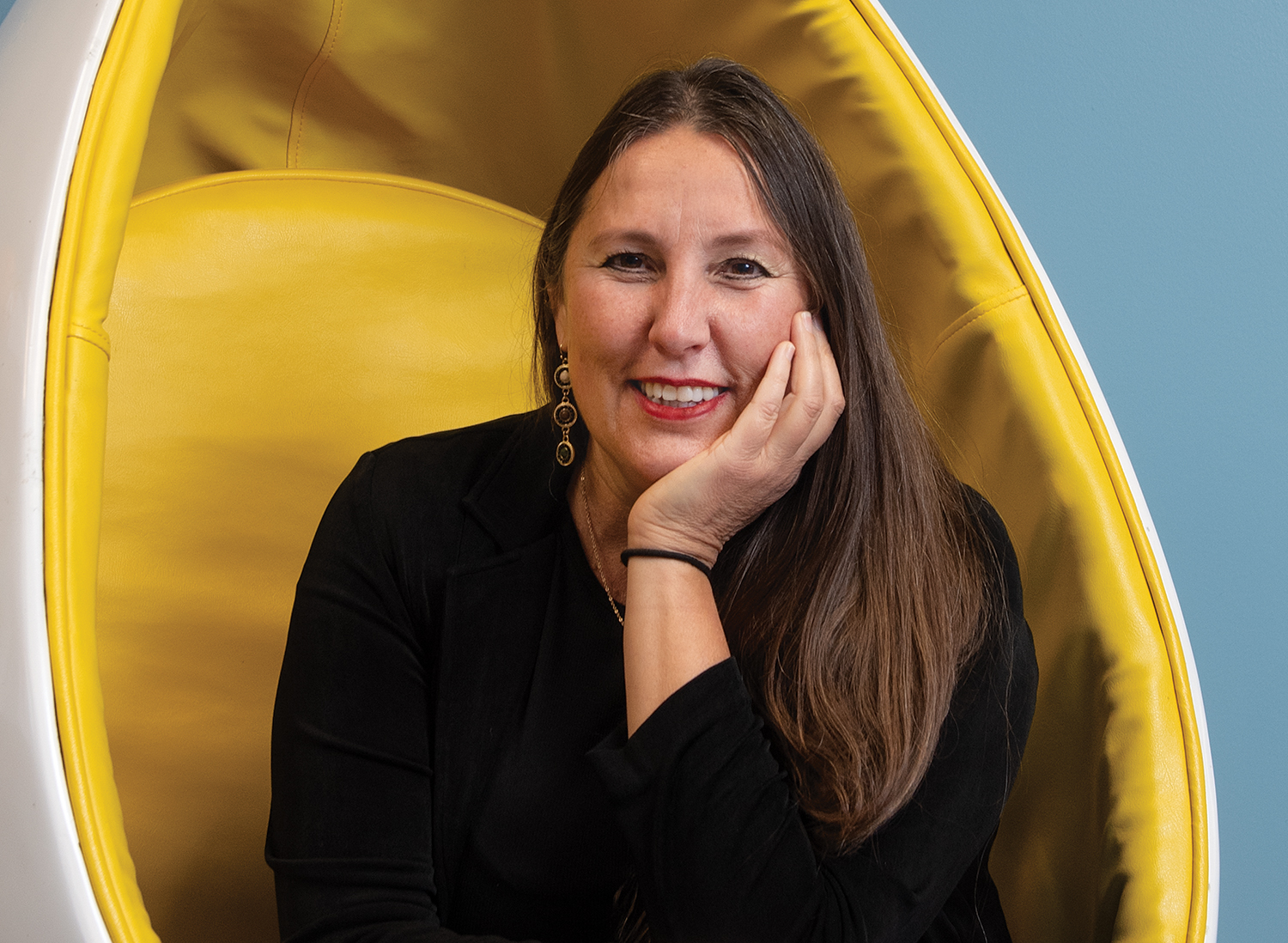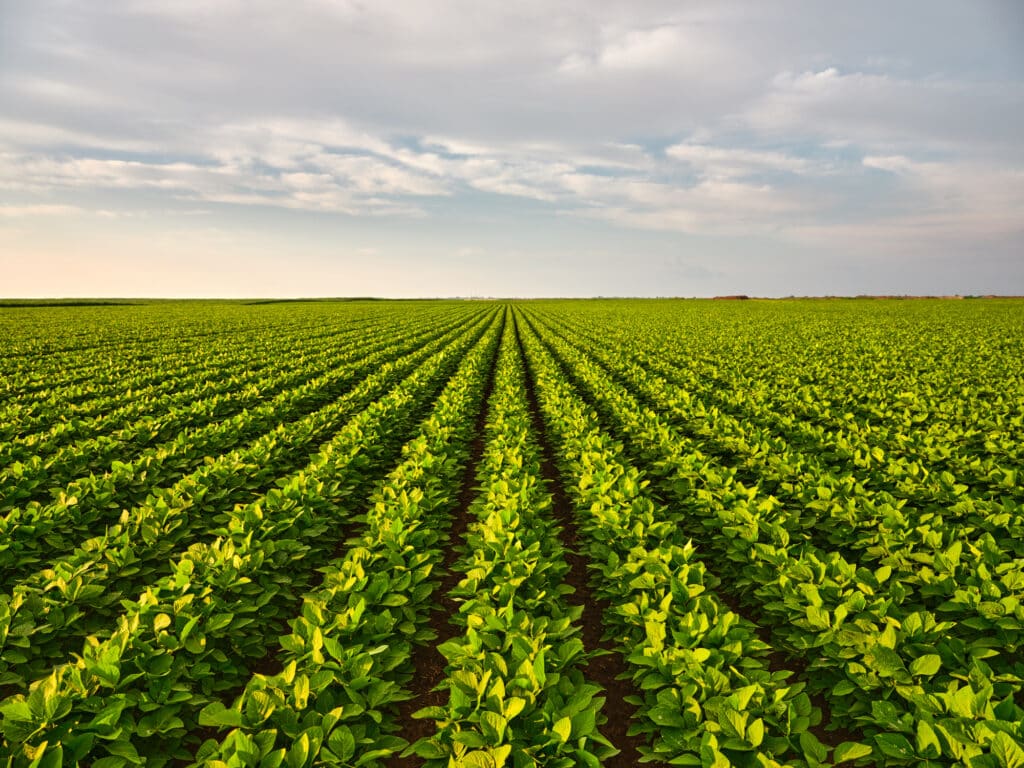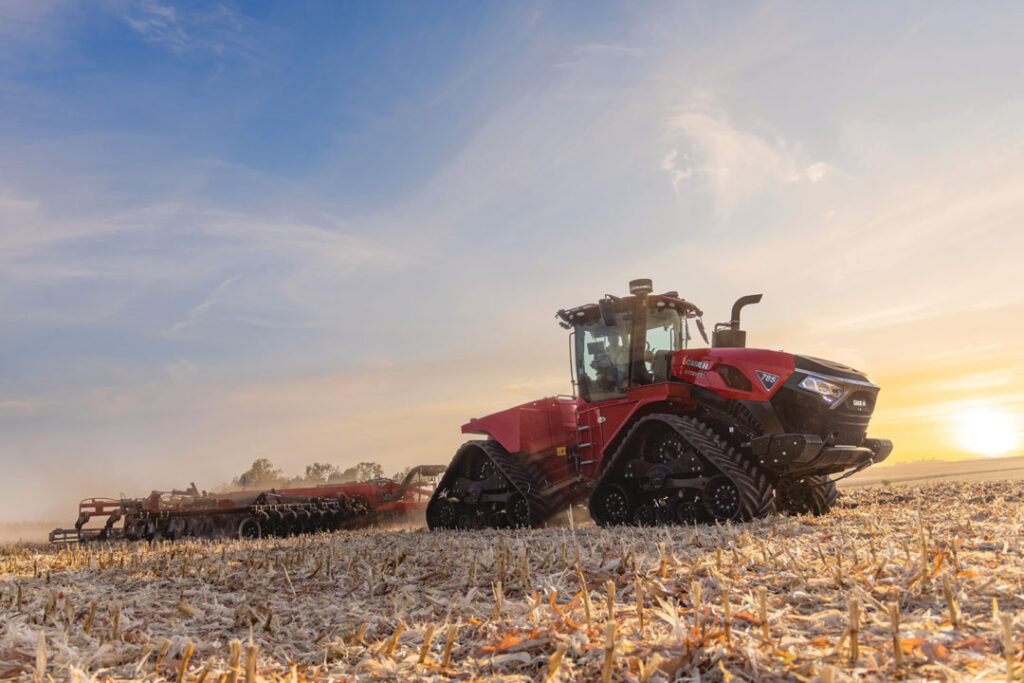A Closer Look: Mindy Larsen
CEO, Iowa Egg Council and North Central Poultry Association

Mindy Larsen often waited for her dad while he met with his lawyer for advice as he navigated the farm crisis. She didn’t know what a lawyer did at the time, but she saw he was a “helper.”
Experiencing those challenging years for agriculture didn’t diminish Larsen’s, nor her dad’s, commitment and passion for the farm.
“My dad is still farming. He will never retire. … It really gets into your soul, and it’s hard to not continue to naturally be an advocate for farming,” Larsen said.
Larsen, a first-generation college student, earned her law degree and started her career working with agriculture clients at a Des Moines law firm. But she shortly moved into advocacy-focused roles, working for the Iowa Farm Bureau Federation followed by 19 years as the director of government relations at the Iowa Corn Growers Association.
In July, Larsen started as CEO of two separate but related organizations: the Iowa Egg Council and North Central Poultry Association.
The Iowa Egg Council provides research, education and promotion for the state’s egg industry. The organization is a checkoff program, meaning by law it cannot lobby on behalf of the industry. The North Central Poultry Association advocates for the poultry industry, including through lobbying. Recent partnerships between Iowa’s poultry industry association and those in Missouri and Minnesota created the new regional organization.
We recently caught up with Larsen.
This Q&A has been lightly edited for length and clarity.
What values did you draw from being raised on your family’s farm?
Some people say farm kids have great work ethic, and they do, but there is a certain expectation when you live on a farm that things must be done. Period. So you learn early to rely on yourself within your family structure, but no one’s going to take care of things for you if you don’t do it. You do learn this thing that farmers have, which is kind of this rugged independence or a frame of mind that this must be done, so my job is not really to say if it can be done. It’s how will I get it done, and that’s a different mindset that I think farming causes.
Tell me more about the partnerships that have created North Central Poultry Association.
North Central Poultry Association used to be called the Iowa Poultry Association, and every state would have its own association. Going into the future it’s kind of difficult for nonprofits to find volunteers or be able to sustain long-term growth, so this organization’s strategic plan looked toward are there other states that would be interested or willing to work together to work on the same goals. My role in the association is to serve our members better. The merger first happened between Minnesota and Iowa. That’s been going on for a couple of years, but the merger with Missouri just happened at my first board meeting. The talks have been going on a long time, but the vote to have them join happened this summer.
How are the Iowa Egg Council and North Central Poultry meant to serve the egg and poultry industries, respectively?
One of the reasons that there are two organizations is that on the Iowa Egg Council side, there cannot be advocacy by law. That’s a hard line. North Central Poultry is funded by voluntary dues. People decide to be a member or not. If they like your goals and your cause, then they pay into that, and then you do have lobbying, so North Central Poultry is a little bit more about advocacy. Something where we’ll be working together as three states would be when we’re trying to advocate with our federal government on some challenges. For example, highly pathogenic avian influenza has been a big challenge for our industry. One of the huge things that we’re focused on both at the federal level with Congress and also here in our state is more funding for research money going into how to better contain animal diseases, how to make the animals stronger, healthier. If they do get sick, how do you take care of them? There is some work on a vaccine for that too, although, I think that is longer away than the public would like.
What are the top priorities for the Iowa Egg Council and North Central Poultry in the next year?
Our top priority for both organizations lands in that research and education area, either lobbying for it on the North Central Poultry side or helping to fund it on the Iowa Egg Council side. Iowa State University, in particular, is the one that we’re working with, but their funding for a number of research-related programs has been flatlined for a number of years, going on a decade. If you want to look at the long-term needs of the poultry and egg business, we have to stay ahead of the curve, on the research and to know what’s coming. Keeping the animals safe and healthy is really paramount. Our priority both at the national level and at the state level is trying to work to firm up some of what we feel has been a loss in investment due to economic conditions.
How is highly pathogenic avian influenza (HPAI) affecting egg and poultry producers?
HPAI has been one of the biggest things and unfortunately because of the impact on the farm, it’s been financially challenging. There are programs that will help egg producers or poultry producers to get through that time, but the government wants people to report early and often because that contains the problem as quickly as possible. Right now, HPAI is here to stay for a while and it’s something that our industry is going to have to continue to work on and so that would be both a short- and long-term goal. On a positive side is building the market for poultry and eggs. Because of supply and demand, if we continue to have strong demand for eggs and if the demand for poultry remains high, then that will also help our producers be more financially successful.
How have higher prices for eggs and chickens affected producers and what is the industry’s outlook for the future?
Inflation has affected poultry and eggs, but the inflation part has more so affected the next step, which would be the packaging and the transportation. That’s been a big factor. The last few years, HPAI has actually been a greater impact probably than people would realize because it’s affecting the supply. It’s not just regular inflation. Our producers are working hard to keep their flocks as healthy as can be and learning how to quickly deal with the disease, find it, get rid of it, clean everything out and then repopulate and move on. I feel like the strength of the supply is going to be stronger, which will then result in a more stable expectation for the consumers.
As research into long-term solutions to HPAI is ongoing, what are the short-term strategies for producers to manage the disease and help with safety?
Biosecurity, biosecurity, biosecurity. It was already really good. Producers have completely stepped up everything. They’re testing all the time so that if you get the first little bit of it, you can act quickly. A facility might have several barns, but producers could contain it to one. The thing that was different about the summer of 2024 version is that it has affected dairy cows for the first time, so that was new to the industry. What we learned during that, as did the dairy industry, is that the biosecurity can’t just be on your own farm. You have to take that even greater step to say, what about a delivery truck? A delivery truck can’t go to farm X and farm Y on the same day. HPAI at the time was not known to affect dairy at all, so some of those extra steps are happening.
One of the Iowa Egg Council’s most well-known initiatives is the free egg on a stick at the Iowa State Fair. Can you share about how that comes together?
For the entirety of the state fair, all the eggs are donated by our member companies. The people in the booth are volunteers who are in the business of eggs and poultry. It’s an absolutely wonderful example of working together to do something that is well-loved. We love doing it and the people at the fair love eating the eggs.
At a glance
Hometown: Marne, Iowa, in Cass County
Education: Bachelor’s degree in political science and government, Drake University; and Juris Doctor degree, Drake University Law School.
Outside of work: Larsen is a foster care and adoption advocate who has eight children ranging from ages 6 to 22. She is also an avid reader and supporter of local libraries.
Contact: mindy@ncentralpoultry.com

Sarah Diehn
Sarah Diehn is editor at Business Record. She covers innovation and entrepreneurship, manufacturing, insurance, and energy.











